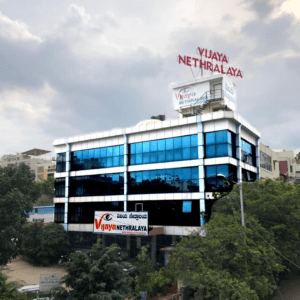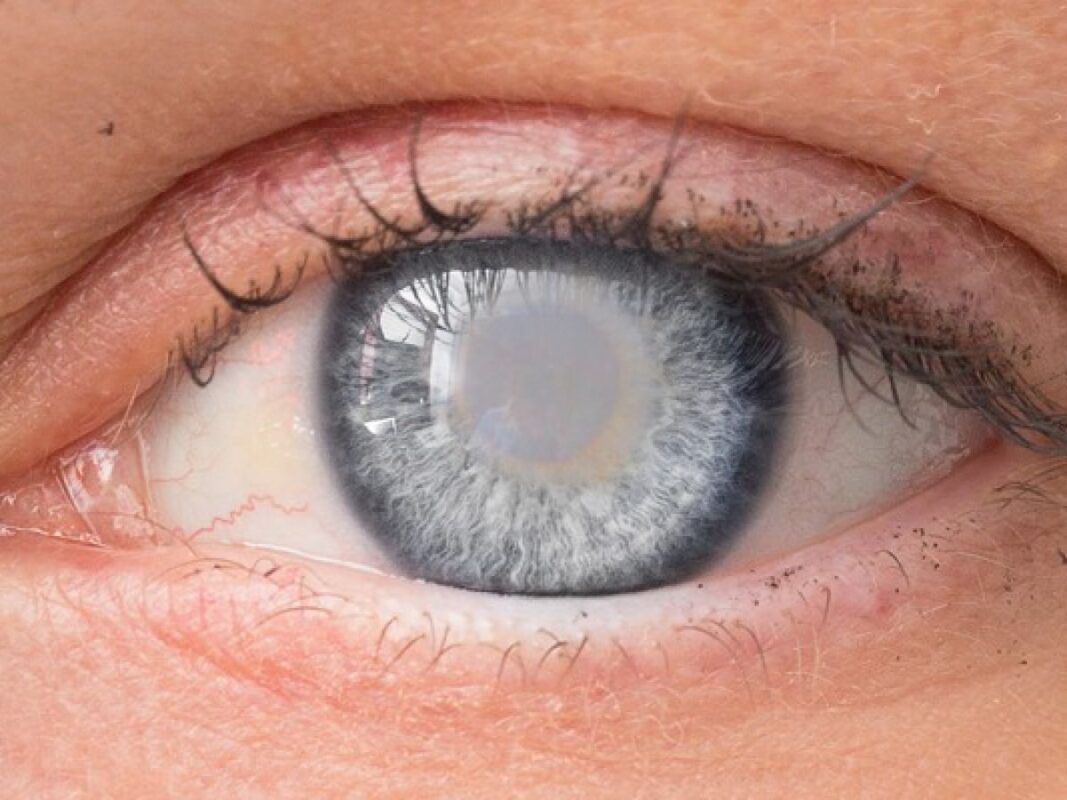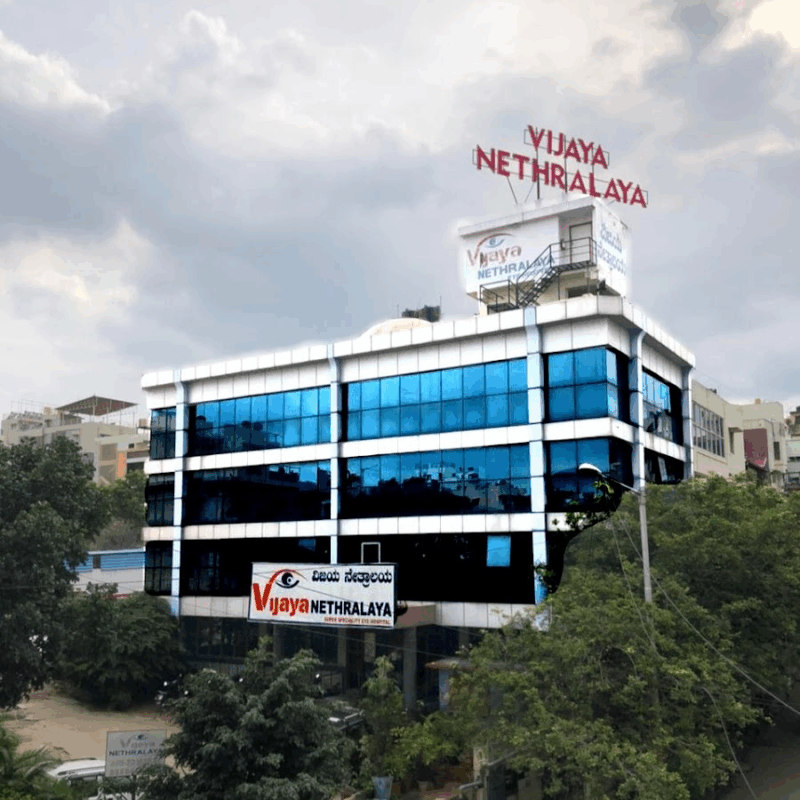Introduction
When it comes to vision correction surgery, there have been numerous advancements over the years. One of the most innovative and effective treatments currently available is Contoura Vision Surgery. Offering precision, minimal recovery time, and significant visual improvements, it has quickly gained popularity among people seeking to improve their eyesight. But what exactly is Contoura Vision, and why is it becoming a popular choice for patients around the world? This comprehensive guide will walk you through everything you need to know about Contoura Vision surgery, from how it works and who is eligible to how you can find the best surgeon near you.
Understanding Contoura Vision Surgery
What is Contoura Vision Surgery?
Contoura Vision is a cutting-edge laser eye surgery designed to correct refractive errors such as myopia (nearsightedness), hyperopia (farsightedness), and astigmatism. Unlike traditional LASIK, Contoura Vision is an advanced topography-guided treatment that maps the surface of your cornea to create a highly personalized treatment plan. The process improves visual clarity and reduces the need for corrective lenses, potentially offering better outcomes than standard laser treatments.
Why is it Gaining Popularity?
Contoura Vision is gaining popularity due to its precision and ability to provide customized treatments for individuals. The technology behind it maps the cornea with exceptional accuracy, addressing the individual curvature of the eye. As a result, patients report better visual outcomes, with sharper vision and reduced visual distortions. Moreover, the procedure has a fast recovery time and fewer complications compared to traditional LASIK.
Who is the Right Candidate for Contoura Vision?
Ideal candidates for Contoura Vision are those who experience refractive errors like nearsightedness, farsightedness, or astigmatism and have stable vision for at least one year. People aged 18 to 55 years are typically good candidates, although exceptions may apply. It’s essential to have a comprehensive eye exam to determine suitability for the procedure.

Understanding Contoura Vision Surgery
How Does Contoura Vision Differ from LASIK and SMILE?
Contoura Vision differs from LASIK and SMILE (Small Incision Lenticule Extraction) primarily in the way the treatment is applied. While LASIK and SMILE are both effective for refractive error correction, they use different techniques. LASIK reshapes the cornea by removing tissue beneath the corneal flap, while SMILE is less invasive and involves removing a small lenticule of corneal tissue through a tiny incision.
In contrast, Contoura Vision uses advanced topography mapping, which creates a precise 3D map of the cornea’s unique shape. This allows for a tailored treatment that goes beyond just correcting refractive errors, offering the possibility of sharper vision. The precision offered by Contoura Vision is unmatched, resulting in minimal risk of complications.
The Technology Behind Contoura Vision
Contoura Vision relies on high-tech topography-guided laser treatment, utilizing wavefront technology and a high-resolution corneal mapping system to deliver a more customized procedure. The system takes over 22,000 unique measurements of the cornea, helping to optimize the shape of the eye for improved visual outcomes.
Benefits of Choosing Contoura Vision Surgery
- Enhanced Visual Clarity: Contoura Vision leads to improved sharpness and contrast sensitivity.
- Customized Treatment: The procedure is personalized based on the unique structure of your eyes.
- Minimal Risk: Compared to traditional LASIK, Contoura Vision has a lower risk of complications.
- Quick Recovery: Patients typically experience minimal discomfort and can resume their daily activities within a few days.
Eligibility Criteria for Contoura Vision
Who Can Undergo This Surgery?
Candidates must meet certain criteria for the surgery to be successful. They should be:
- Over 18 years old
- Have stable vision for at least a year
- Be free from eye diseases like cataracts or glaucoma
- Not be pregnant or nursing (in the case of women)
Medical Conditions That May Affect Eligibility
Certain medical conditions such as dry eyes, autoimmune diseases, or severe corneal abnormalities can impact eligibility. It is important to disclose any health conditions during your consultation to ensure the procedure is safe for you.
Age Requirements and Eye Power Considerations
Contoura Vision is most effective for patients between the ages of 18 and 55, as vision tends to stabilize after the age of 18. The degree of refractive error should be within a specific range, as patients with very high prescriptions may not be ideal candidates. Your surgeon will evaluate your eye power and overall health during the consultation to determine eligibility.
Finding the Best Contoura Vision Surgery Near You
How to Search for the Best Clinics?
Finding the right clinic is essential to ensuring a successful outcome. Start by researching accredited centers with experience in performing Contoura Vision. You can search online or ask for recommendations from your eye care professional.
Factors to Consider When Choosing a Surgeon
- Experience: Look for surgeons who specialize in Contoura Vision and have performed a significant number of surgeries.
- Technology: Ensure the clinic uses the latest technology to perform the procedure.
- Certification: Verify that the clinic is accredited and that the surgeon is board-certified.
Reviews and Testimonials: Why They Matter
Reviews and testimonials from previous patients can provide valuable insights into the quality of care at a particular clinic. Look for feedback regarding patient experiences, recovery time, and the surgeon’s professionalism.
Cost of Contoura Vision Surgery
Average Pricing Range in Different Locations
The cost of Contoura Vision surgery can vary based on location, the clinic, and the complexity of the procedure. On average, the procedure can cost between $2,000 to $4,000 per eye. Prices may be higher in metropolitan areas or specialized clinics.
Does Insurance Cover Contoura Vision?
Most insurance plans do not cover elective procedures like Contoura Vision surgery. However, some clinics may offer payment plans or financing options to make the treatment more affordable.
EMI Options and Financing for Patients
To help manage costs, many clinics provide EMI (Equated Monthly Installments) options or other financing plans, allowing you to pay for the surgery in manageable amounts over time.
The Procedure: Step-by-Step Guide
Pre-Surgery Consultation and Tests
Before the procedure, you will undergo a thorough eye exam to determine the shape and health of your cornea. Your surgeon will discuss your medical history, assess your vision, and determine whether Contoura Vision is the right choice for you.
The Day of Surgery: What to Expect
On the day of surgery, the procedure typically takes less than 30 minutes per eye. You will be given numbing eye drops, so you won’t feel pain during the surgery. The laser will reshape your cornea based on the detailed map created during your consultation.
Recovery Period and Post-Op Care
Most patients experience minimal discomfort after the surgery, and recovery time is usually fast. You will be advised to avoid rubbing your eyes and to use prescribed eye drops to prevent infection and promote healing. Your vision should start improving within a few days, but full results may take several weeks.
Risks and Side Effects of Contoura Vision
Common Side Effects and How to Manage Them
Some common side effects include dryness, glare, or halos around lights. These typically subside after a few weeks. It’s essential to follow post-operative instructions to manage these symptoms effectively.
Rare Complications and Their Treatment
While rare, complications such as infection, undercorrection, or overcorrection may occur. In such cases, additional treatments or adjustments may be necessary. Discuss any concerns with your surgeon before the procedure.
How Safe is Contoura Vision?
Contoura Vision is considered to be a safe procedure with a high success rate. The precision of the treatment minimizes risks, and most patients experience significant improvements in their vision.
Comparing Contoura Vision, LASIK, and SMILE
Differences in Procedure and Outcomes
Contoura Vision provides a more customized treatment compared to LASIK and SMILE, making it ideal for those with irregular corneal shapes. LASIK is suitable for most people, while SMILE is less invasive but not as customizable as Contoura Vision.
Which One Suits You Best?
Your surgeon will help you decide between Contoura Vision, LASIK, and SMILE based on your eye health, lifestyle, and preferences.
Pros and Cons of Each Surgery
- Contoura Vision: High precision, best for irregular corneas, minimal recovery.
- LASIK: Well-established, fast recovery, but less customizable.
- SMILE: Minimal invasiveness, less discomfort, but limited customization.
Success Rate and Patient Testimonials
Real-Life Experiences
Many patients report excellent results, with improved vision and minimal complications. Testimonials highlight better clarity and reduced dependence on glasses.
Statistical Success Rate of Contoura Vision
The success rate of Contoura Vision surgery is approximately 98%, making it one of the most successful refractive surgeries available.
How Soon Can You Expect Results?
Most patients begin to notice significant improvements in their vision within a few days after the procedure. Full visual recovery may take several weeks.
Preparing for the Surgery
Do’s and Don’ts Before Surgery
Before surgery, avoid wearing contact lenses for a few weeks, as they can alter the shape of your cornea. Follow any pre-surgery instructions provided by your surgeon, such as refraining from using makeup or lotions on the day of surgery.
Medications and Lifestyle Adjustments
You may be advised to stop taking certain medications or adjust your lifestyle habits leading up to the surgery to ensure optimal results.
Mental Preparation and Expectations
Prepare yourself mentally for the procedure by discussing any concerns with your surgeon. Understanding the process and setting realistic expectations will help ensure a smooth experience.
Post-Surgery Care and Recovery
Immediate Aftercare Tips
After surgery, use prescribed eye drops to prevent infection and keep your eyes moisturized. Avoid any strenuous activities for at least a week.
Long-Term Precautions for Maintaining Eye Health
Maintain regular follow-up visits to monitor the health of your eyes and ensure optimal healing. Continue to protect your eyes from UV light and avoid rubbing your eyes.
Follow-up Visits and Monitoring
Regular follow-ups are essential for tracking your recovery and ensuring that any potential complications are addressed promptly.
Conclusion
Contoura Vision is a revolutionary eye surgery that offers precision and personalized results for those seeking to improve their vision. Whether you’re exploring options to correct your refractive errors or looking for a surgery that provides minimal recovery time, Contoura Vision could be the solution you’ve been searching for. Be sure to consult with a qualified surgeon to determine if this procedure is the right choice for you, and take the first step toward clearer, sharper vision.
Author Details:
Dr. Sushruth Appajigowda holds a prominent position as a Cornea, Cataract, Glaucoma, and LASIK Surgeon in Bangalore. He serves as the chief Cataract and Refractive surgeon at Vijaya Nethralaya Eye Hospital, Nagarbhavi Bangalore. Renowned as one of the finest LASIK surgeons nationwide, he brings with him over 12+ years of experience across multiple LASIK platforms, including ZEISS, ALCON, SCHWIND, AMO, and Bausch and Lomb. Having successfully conducted over 5000 LASIK procedures, Dr. Sushruth holds the title of a Certified Refractive Surgeon and a Fellow of the All India Collegium Of Ophthalmology. Furthermore, he stands as a distinguished speaker at various National and International Forums, using his expertise to guide you in selecting the most suitable procedure based on your health requirements.

http://vijayanethralaya.com/link-in-bio/
Frequently Asked Questions (FAQs)
Is Contoura Vision Painful?
No, Contoura Vision is not painful. You will be given numbing eye drops before the procedure.
How Soon Can I Resume Work After the Surgery?
Most patients can resume work within 1 to 2 days after surgery, depending on their comfort level.
Will My Vision Be 100% Perfect After Surgery?
While many patients experience near-perfect vision, results can vary. Some people may still need glasses for certain tasks.
Can Contoura Vision Be Repeated If Necessary?
In rare cases, a second procedure may be required, but this will be discussed with your surgeon during the consultation.
What Happens If I Rub My Eyes After Surgery?
Rubbing your eyes after surgery can cause complications, including infection or dislodging the corneal flap. It’s essential to avoid rubbing your eyes during the recovery period.












